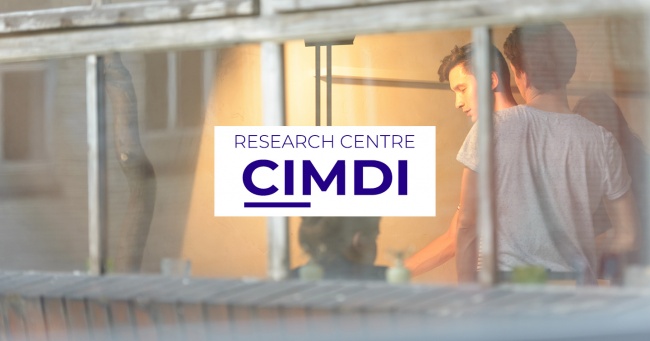Research Centre
Intercultural Management, Diversity and Inclusion
In the 1980s, the American economist and Harvard Business School professor Theodore Levitt popularised the term ‘globalisation’ by writing about emerging global markets and the advantages of standardised consumer products. More than thirty years later, this very phenomenon – globalisation – has had profound effects on business operations across the globe, and the cross-border activities of companies have made the concept of culture, especially national culture, highly relevant to organisations and managers alike.
However, national culture, although important, represents only one of the various dimensions across which individuals and employees differ. Today, other diversity dimensions, such as gender, LGBTQ+, age or personality are also extensively discussed, especially with respect to their impact on teams, organisations, and leadership requirements. Diversity in its various forms can improve team creativity and innovation, benefiting companies substantially by increasing their performance.
However, this diversity comes at a price and can also complicate collaborative processes. Conflicts may increase while trust and cohesion among team members decrease. In this case, this limits employees’ opportunity to contribute their various perspectives allowing organisations to realize the potential that is inherent in diversity. The question is then, how organisations can successfully manage an increasingly diverse workforce to leverage this potential. Inclusion represents a very promising approach to do so.
Instead of counting heads, which is often the focus of diversity management, inclusion focuses on making heads count. By ensuring that employees develop a sense of belonging within the organisation while also being encouraged to bring their unique selves to work, an inclusive work environment helps all employees regardless of their backgrounds and characteristics to contribute their diverse perspectives and ideas.
In our research, we highlight the importance of employees’ intercultural and inclusion competences, their development, and their impact on creating such an inclusive work environment.
Marion Festing
Professor of Human Resource Management and Intercultural Leadership
Mission/Objectives
Our goal
The goal of the Excellence Centre for Intercultural Management, Diversity and Inclusion is to deepen the understanding of intercultural management, diversity, and inclusion-related issues in organisations and to translate the latest scientific insights into practice.
Specifically, our Excellence Centre focuses on three research questions:
- First, how can we define and conceptualise individual competences that support and foster an inclusive work environment?
- Second, what trajectories exist or can be envisioned that help employees and leaders to develop these competences?
- And finally, what tangible effects can we observe in an organisational environment that focuses on inclusion?
Academic research on these questions can only be a first step; we further aim to translate the resulting insights from our research into practice. Therefore, we regularly engage with companies across the world in order to collect more data, discuss our findings and support them in further developing their inclusion agenda. This entails keynote presentations, webinars as well as training and consulting measures.
Main Research Themes
Individual contributions to inclusion in organisations: Developing inclusion competence
Creating an inclusive work environment not only requires organisational structures and processes to be supportive, but also joint efforts from different actors in an organisation.
Top management, leaders and team members alike can contribute to an inclusive climate and employees’ feelings of belonging and being valued for their uniqueness. While most research in the field has focused on individual perceptions of being included, little attention has been paid to the individual employee as a driver of inclusion in organisation.
With our research, we aim to fill this gap introducing inclusion competence as a key employee competence if organisations want to harness the potential of a diverse workforce. Further, to help organisations assess and monitor their employees’ level of inclusion competence and to identify potential training and development needs, we are developing a measure that captures the concept on different levels (e.g., cognitive, affective, and behavioural).
New ways of developing intercultural and inclusion competences
Given the current discussions (e.g., how can innovative educational approaches improve the learning transfer?) and the increasing digitalisation of education, we are exploring new ways of teaching and learning.
At ESCP Business School we developed Moving Tomorrow, a serious video game series. It aims to develop intercultural competences focusing on but not limited to national cultural differences in users. On the contrary, various diversity dimensions have been deliberately integrated.
The Moving Tomorrow series is a game-based learning application, where players immerse in a video game-like environment and get to learn about different insights from cross-cultural psychology and intercultural management and diversity research from a theoretical and practical point of view. As the current understanding of learning with these so-called serious games is still rather limited, we wish to explore not only the effectiveness of using applications like Moving Tomorrow to develop intercultural and inclusion competences, but to also carve out the unique characteristics of the underlying learning process when players play the game.
Diversity, inclusion, and innovation – making heads count
Research has demonstrated more than once that there is a business case for diversity: Organisations that do not embrace diversity enough risk losses, or at least reduced profits.
Increased creativity and innovation are discussed as major advantages related to a diverse workforce. However, diversity can also be a hindrance to trust and cohesion in teams, making conflicts more probable and sharing perspectives less likely. Therefore, the relationship between diversity and innovation is not as straightforward as it may seem; it depends on a variety of other factors.
With our research, we aim to contribute to a better understanding of the success factors that enable organisations to benefit from the innovative potential of a diverse workforce with a specific focus on the role of an inclusive work environment. Building on our findings, we derive implications to inform different actors in organisations which include, but are not limited to, top management, team leaders, and Human Resource Management in general.
#Research Centre
Intercultural Management, Diversity and InclusionLearning
Learning has become a central cornerstone in an increasingly complex world that requires individuals to grow constantly – both personally and professionally. At the same time, the advent of the internet has created easy access to information and knowledge that has never been there before. At ESCP Business School, we combine the advantages of traditional classroom-based learning with opportunities inherent in innovative, technology-enhanced learning environments.

Moving Tomorrow – Serious Game About Intercultural Management
Moving Tomorrow is a serious game series aiming to enhance the players’ intercultural understanding and their inclusion competence. The Moving Tomorrow series is built upon core mechanisms of gaming, where the players will engage in conversations with other characters (non-player characters) and make important decisions that will ultimately affect how the story pans out. In eight hours of gameplay, the players embark on a virtual journey to the Berlin-based start-up “Runergy” and to its subsidiaries in Russia, China and India, where they will unravel an evil plot that endangers Runergy’s future. So, get ready to save Runergy and learn more about culture and intercultural management, which will also help you to get a better understanding of diversity and inclusion.
Learn moreMOOC on Intercultural Management
Are you interested in the concept of culture and want to learn more about how culture influences business processes such as team work, human resource management, marketing or negotiations? We would like to invite you to take a look at our Massive Open Online Course (MOOC) on Intercultural Management. This digital learning format will help to refine your understanding of culture and businesses by presenting related scientific concepts that are complemented by the practical perspective of our industry experts.
Teaser Trailer MOOC

Programmes for Students and Young Professionals
Get to know the fundamentals of management research in our Bachelor programme or refine your existing knowledge in one of our specialised Master programmes. As a student, you benefit from our multi-campus concept, which enables you to study in different countries across Europe. This guarantees that our students are not only equipped with an understanding of the latest management concepts, but they are also able to embrace and utilise cultural diversity within organisations.
Bachelor MasterProgrammes for Executives and Professionals
Complement your practical expertise with research-based insights from our professors. As a professional, you can participate in our executive programmes that cover a variety of topics ranging from leadership to design thinking and risk management. During these programmes, you will not only benefit from the experience and input of our professors, but you will also be able to expand your network and share perceptions with other participating professionals. In addition, we offer customised programmes that are tailored specifically to address your needs.
Executive Education
#Research Centre
Intercultural Management, Diversity and InclusionExpertise
Our aim is to develop and provide intercultural, diversity and inclusion management research and solutions for practitioners by developing and running practice-oriented and academic research projects.
- Global employees' psychological capital as a personal resource in international HRM
- Evaluation of the German law to promote equal participation of men and women in leadership positions
- Intercultural leadership adjustment of expatriates
- The effect of culture on perception and cognition
- Cultural moderators in intercultural business negotiations
Prof. Dr. Marion Festing about Intercultural Management & Intercultural Leadership
Associated Research Centres
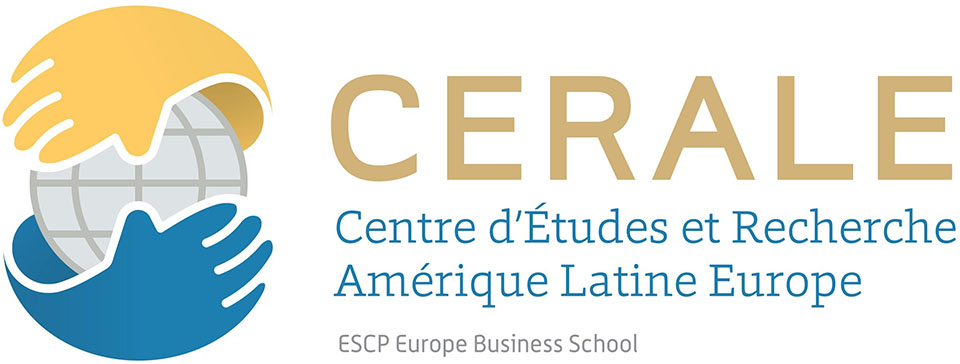
Centre d’Etudes et de Recherche Amérique Latine Europe
The centre aims to promote groundbreaking research in broad management issues by mobilising jointly, fully experienced teams of European and Latin American researchers.
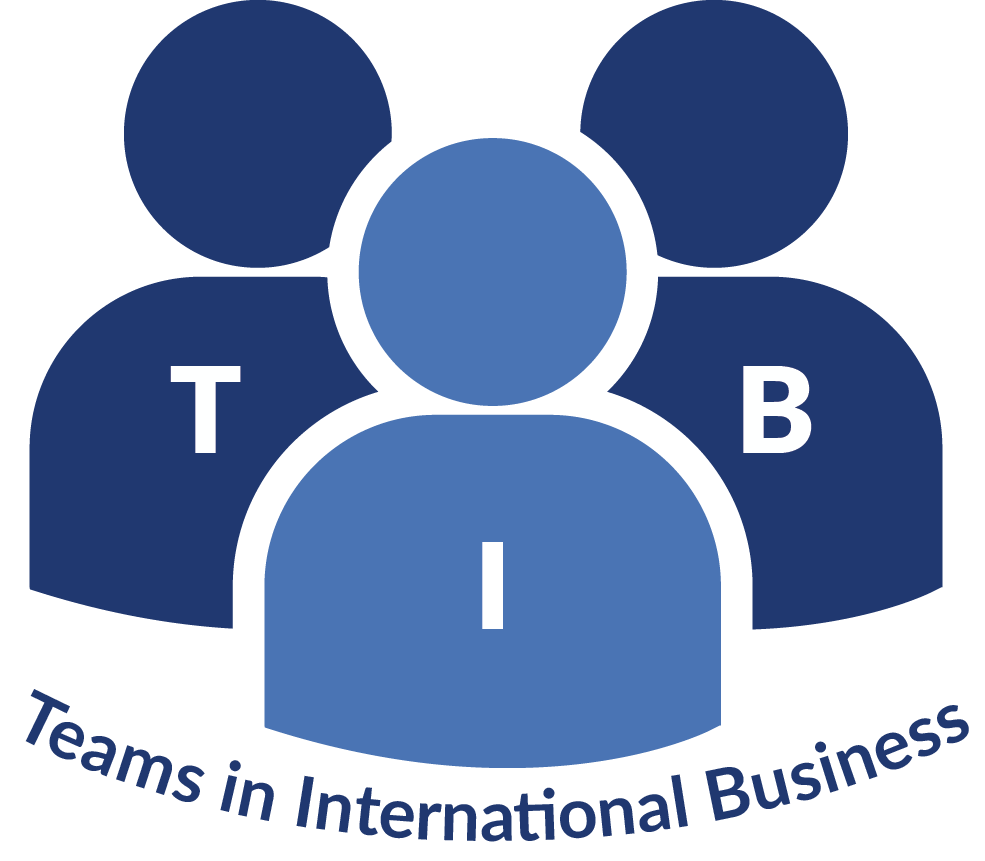
Teams in International Business Research Centre
The centre aims to advance scientific knowledge at the intersection of two areas: International operations of companies and teams that have to perform various tasks.
Detailed Project Examples
In terms of international assignments, Western expatriates and human resources (HR) departments find Russia to be one of the most challenging destinations. Why? Well, one of the key reasons is the often profound difference in leadership behaviours between East and West, and so managers have a keen interest in understanding which management styles are necessary to succeed in a Russian professional setting. In a series of 35 one-hour interviews, we set out to gain a thorough understanding of leadership-related success factors for Western expatriates in Russia. Three key findings emerged from the research:
It is necessary for expatriates to become more authoritarian, though not as much as the Russians themselves. They must also find the right balance between authority and a people orientation, and finally, they must learn to motivate Russian employees through a combination of control and rewards. This necessarily has implications for HR departments, because they need to adapt their pre-departure training and ongoing support programmes differently and more extensively than in other countries.
Transactions in business-to-business markets frequently rely on negotiations between selling and buying companies, and these negotiations often cross borders whereby the buying company originates from a country that is different from the selling company’s country of origin. Not surprisingly, cultural differences between teams in these companies can complicate the negotiation process and may lead to the use of negotiation strategies, where one party wins only at the expense of the other.
One idea to overcome these challenges is to equip negotiation teams with a ‘cultural moderator’, an individual who has the same cultural background as the business partner. In a case-study-based negotiation simulation with more than 200 participants, the authors were able to show that depending on the degree of the cultural moderator’s collectivism, such a moderator can help to design a negotiation process that focuses on win-win agreements rather than on win-lose scenarios. However, the use of particular negotiation strategies was only weakly (if at all) connected to economic outcomes of the negotiation. Interestingly, despite the fact that a cultural moderator can increase or decrease the focus on win-win agreements, he/she consistently helps teams to improve their economic outcomes (such as increasing profits) in negotiations.
Read more#Research Centre
Intercultural Management, Diversity and InclusionAbout us
Our vision is to become the leading institute and primary resource for the development of interpersonal competences centered around topics of culture, diversity and inclusion.
In addition, we aim to conduct high-profile academic and practice-oriented research projects in the fields of intercultural management, diversity and inclusion by collaborating with a large network of academics and organisations.
We are a group of researchers with experience in the field of intercultural management and we are passionate about human resources and (cultural) diversity. We believe strongly in the potential of an increasingly interconnected and diverse world, not only in terms of organisational benefits, but also in terms of a more tolerant and open-minded society. Workforce heterogeneity is a critical enabler for organisational creativity, as employees from different backgrounds bring their unique perspectives to the table. This in turn fosters an intercultural dialogue necessary to remove existing intercultural barriers, fears, and prejudices.
Through this newly founded institute, we offer our independent expertise and knowledge to practitioners and academics alike.
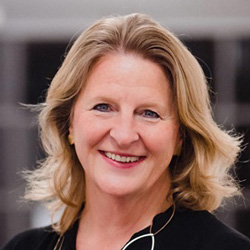
Professor of Human Resource Management and Intercultural Leadership
Prof. Dr. Marion Festing is the Academic Director of our Excellence Centre for Intercultural Management, Diversity and Inclusion. At ESCP in Berlin, she is the Chair of Human Resource Management and Intercultural Leadership. In her research she focuses on topics such as international HRM strategies and approaches, with special emphasis placed on emerging countries, female careers, global talent management and global performance management.
In addition, she is also interested in intercultural leadership adjustments as well as in intercultural competences and careers. Marion Festing gained practical work experience in Taiwan, has researched at Monash University in Melbourne, Australia, and at Michigan State University, USA, and has lectured at the University of Sfax in Tunisia, amongst many others. Moreover, Prof. Dr. Marion Festing has fulfilled functions as an (associated) editor and reviewer for several journals.

Sina Alessa Kraus joined the Chair of Human Resource Management and Intercultural Leadership at ESCP in Berlin in March 2018 as a research assistant. Her research interest lies primarily in the field of Diversity & Inclusion. More specifically, her work focuses on the development of an inclusive climate in organizations and the individual contribution to creating such an environment, drawing on insights from intercultural management and other disciplines.
Before joining ESCP, Sina Alessa Kraus studied Psychology at University of Osnabrück, Free University of Berlin, and University of Montreal, Canada. She gained practical work experience, for example, in the Diversity Management department of Westdeutscher Rundfunk (WDR) and at Deutsche Bahn’s academy for leadership development. Furthermore, she is a certified intercultural trainer and systemic consultant and works as a freelancing lecturer.
Extended Academic Team

Aurélien Acquier
Professor, Department of Management, ESCP Paris Campus

Kerstin Alfes
Professor, Department of Management, ESCP Berlin Campus
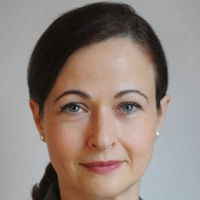
Katharina Balazs
Professor, Department of Management, ESCP Paris Campus
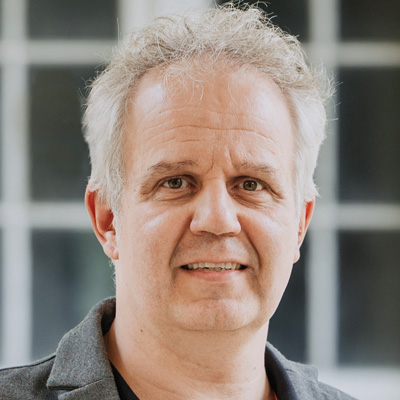
Markus Bick
Professor, Department of Information and Operations Management, ESCP Berlin Campus
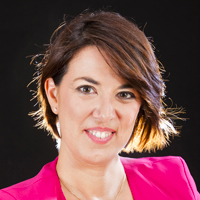
Lorena Blasco-Arcas
Professor, Department of Marketing, ESCP Madrid Campus
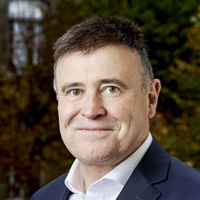
Frank Bournois
Dean of ESCP
Professor, Department of Management, ESCP Paris Campus
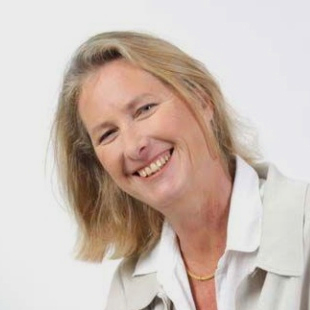
Isabelle de Boysson
Professor, Department of Management, ESCP Paris Campus

Justin Joseph Byrne
Professor, Department of Management, ESCP Madrid Campus
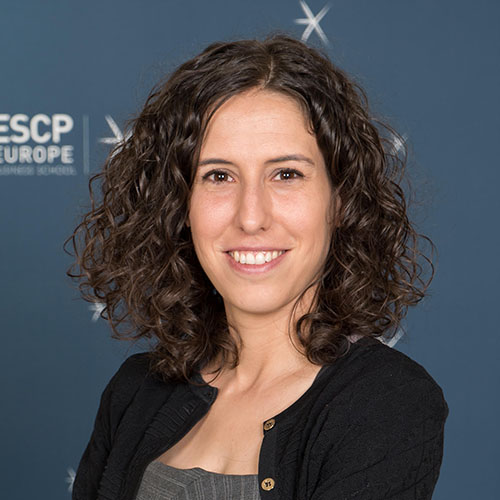
Almudena Cañibano
Professor, Department of Management, ESCP Madrid Campus
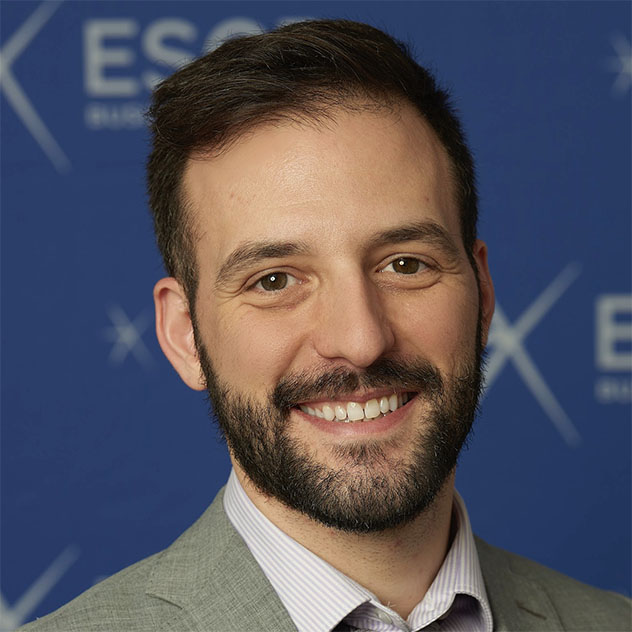
Petros Chamakiotis
Professor, Department of Management, ESCP Madrid Campus
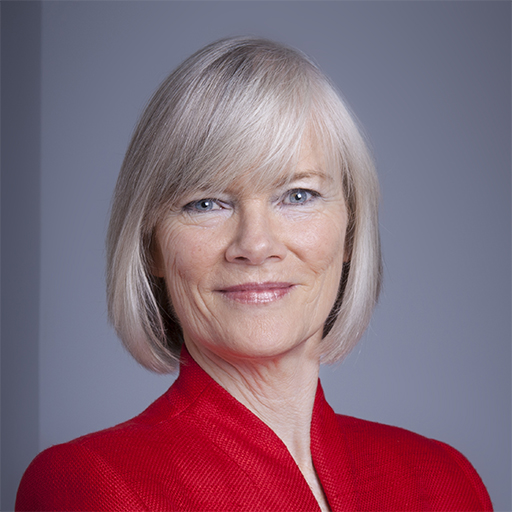
Diana Clarke
Professor, Department of Management, ESCP Madrid Campus
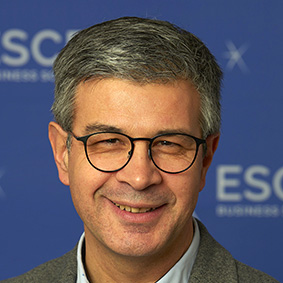
Régis Coeurderoy
Professor, Department of Management, ESCP Madrid Campus

Béatrice Collin
Professor, Department of Management, ESCP Paris Campus
Claire Dambrin
Professor, Department of Management Control, ESCP Paris Campus
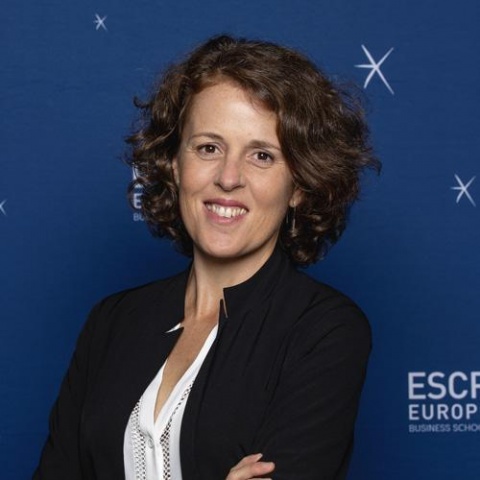
Géraldine Galindo
Professor, Department of Management, ESCP Paris Campus

Andreas Kaplan
Professor, Department of Marketing, ESCP Paris Campus

Minas Kastanakis
Professor, Department of Marketing, ESCP London Campus

Philip Meissner
Professor, Department Management, ESCP Berlin Campus
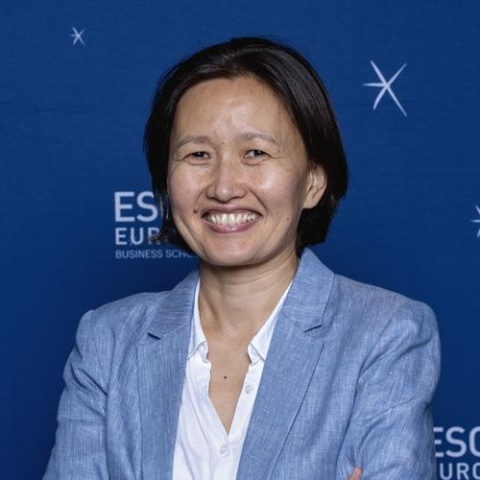
Maral Muratbekova-Touron
Professor, Department of Management, ESCP Paris Campus

Diana Pérez-Arechaederra
Senior Teaching Fellow, ESCP Madrid Campus

Florence Pinot de Villechenon
Professor, Department of Economics, Law and Social Sciences, ESCP Paris Campus Scientific Director Centre d’Etudes et de Recherche Amérique Latine Europe
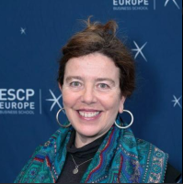
Nathalie Prime
Professor, Department of Marketing, ESCP Paris Campus
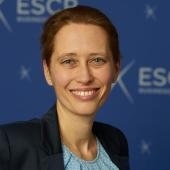
Gwendolin Sajons
Professor, Department of Management, ESCP Berlin Campus
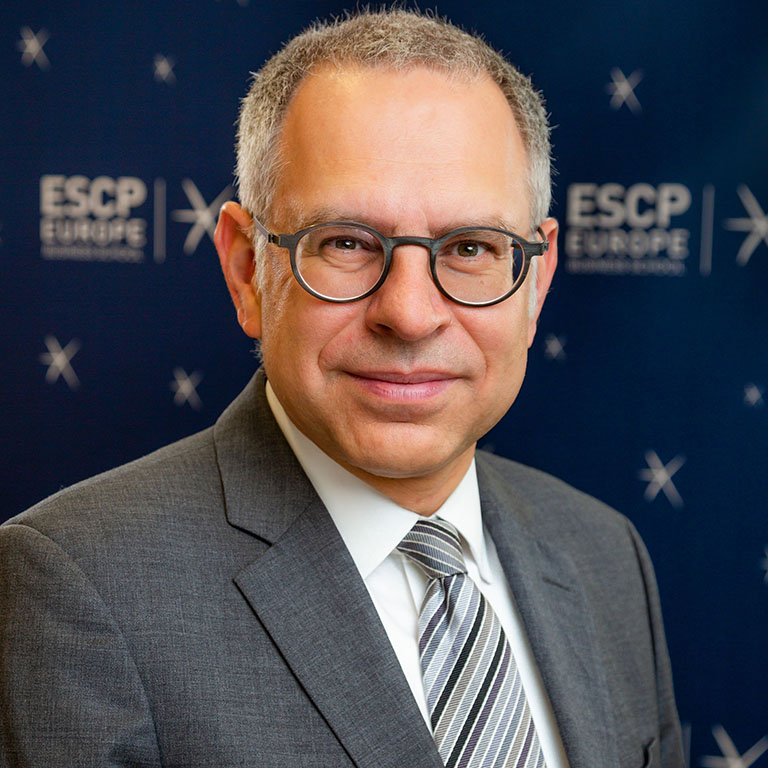
Stefan Schmid
Professor, Department of Management, ESCP Berlin Campus

Julien Schmitt
Professor, Department of Marketing, ESCP Paris Campus
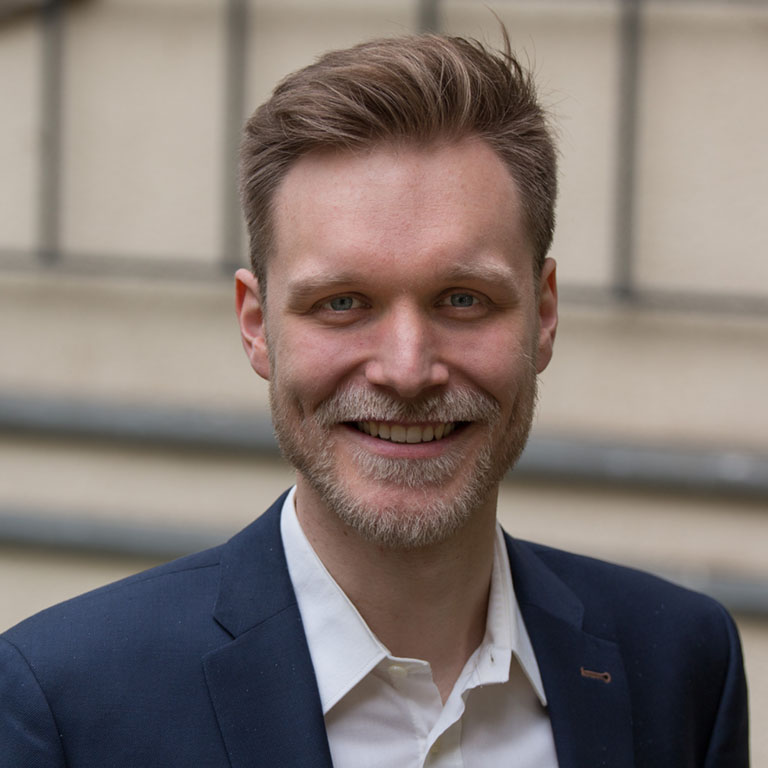
Tobias Schumacher
Research Assistant, ESCP Berlin Campus
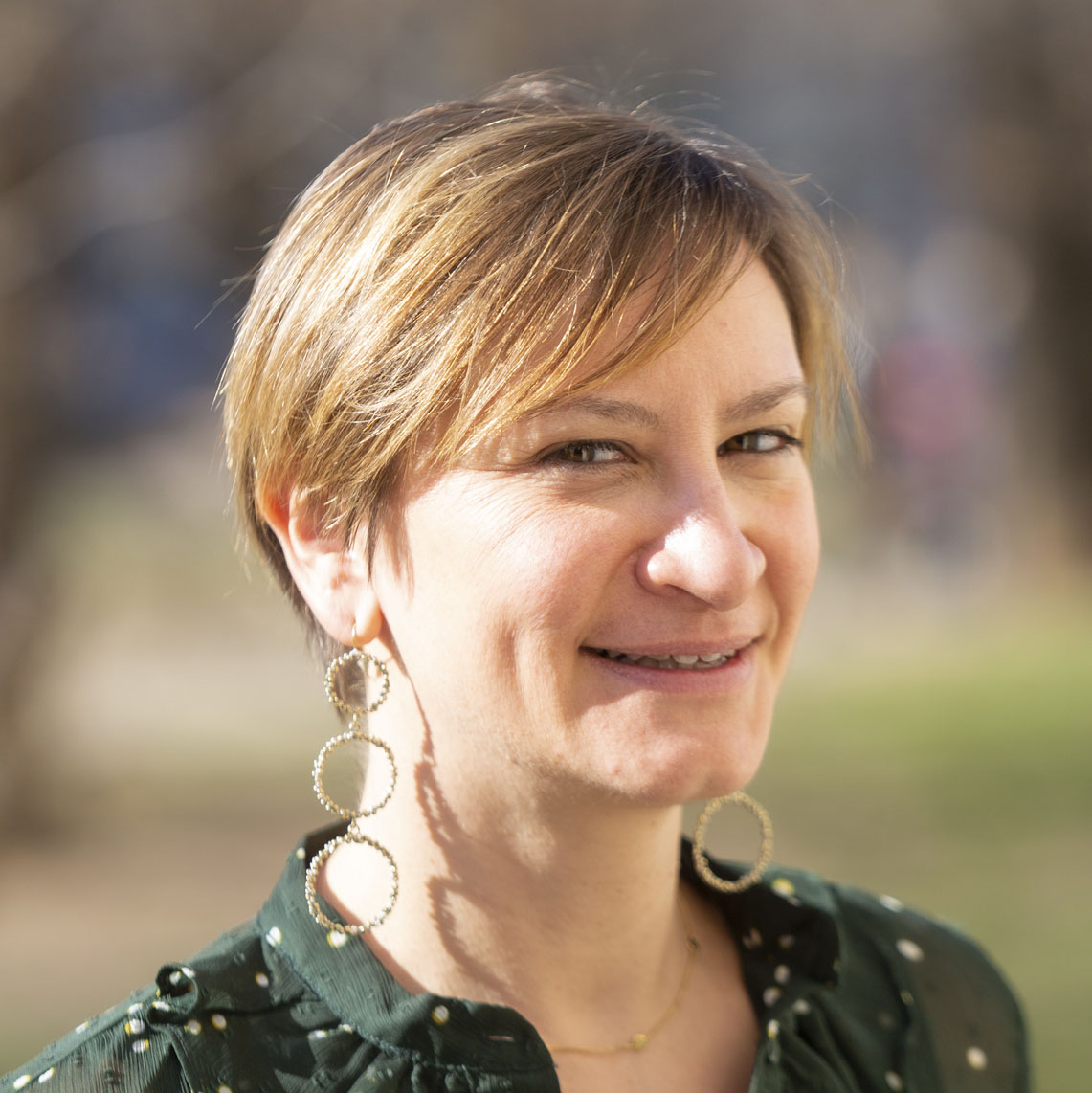
Chiara Succi
Professor, Department of Management, ESCP Turin Campus
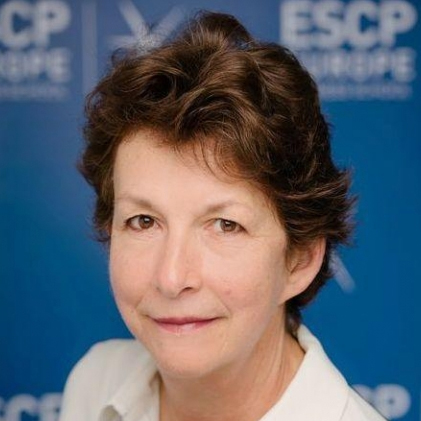
Marie Taillard
Professor, Department of Marketing, ESCP London Campus
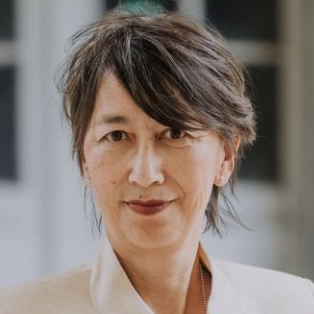
Véronique Tran
Professor, Department of Management, ESCP Berlin Campus
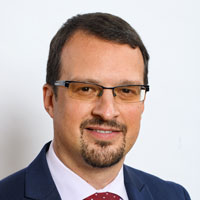
Francesco Venuti
Professor, Department of Financial Reporting & Audit, ESCP Turin Campus
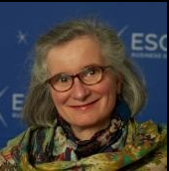
Caroline Verzat
Professor, Department of Management, ESCP Paris Campus

Benjamin Voyer
Professor, Department of Entrepreneurship, ESCP London Campus

Robert Wilken
Professor, Department of Marketing, ESCP Berlin Campus
Scientific Director Teams in International Business Research Centre
